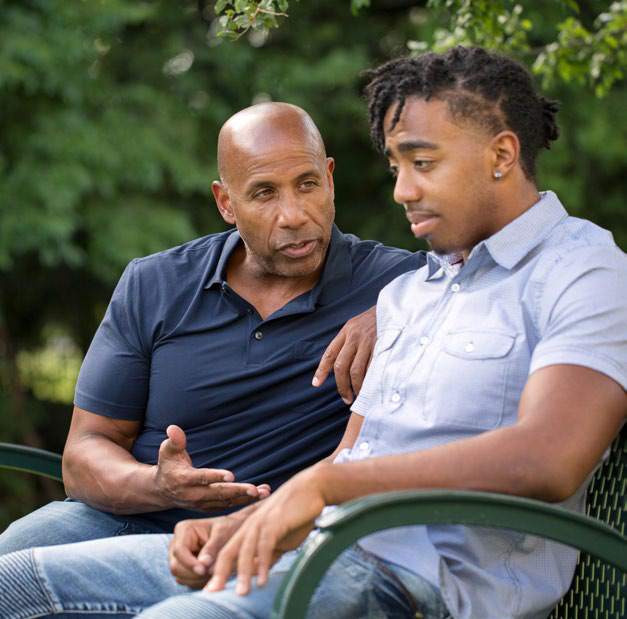While we’re not trained mental health professionals, we are brothers and sisters who have gone through situations much like what you are experiencing, and we have so much compassion and empathy for you. We want to help.
This situation is unlike anything else in your life. It’s hard, and it’s scary. You’re probably feeling many different emotions and aren’t sure what to do.
We’ve learned how important it is to take care of yourself, first and foremost. Please talk with your parents, a trusted adult, or a professional counselor or therapist. Tell them what you are feeling and what you need. It’s okay to ask for help.
And if you feel like you’re stuck and don’t know where to turn, these organizations can help you, 24/7:
- The 988 Suicide and Crisis Lifeline is a national network of local crisis centers with trained counselors available to provide free and confidential support. Dial or text 988.
- The National Runaway Safeline offers confidential support to help you and your family if you are in crisis. Call 800-RUN-AWAY (800-786-2929).
- The National Alliance on Mental Illness Helpline is a nationwide peer-supported service that provides information, resource referrals, and support. Text 62640 or call 800-950-6264.
- Findtreatment.gov is a confidential, anonymous resource for locating treatment facilities for mental health and substance use disorders. Visit https://findtreatment.gov/locator to find treatment options near you.
- Team HOPE, part of the National Center for Missing & Exploited Children (NCMEC), offers peer support, empathy, kindness, and friendship to people who have experienced being missing and/or exploited or who are family members of a missing and/or exploited child. Call 800-305-HOPE (4673).
Your feelings are okay.
Talk about them when you can.
Don’t be afraid or ashamed to ask for help.
If you are reading this because your brother or sister is missing, this Guide is for you.
If you are reading this because someone you know—a friend, classmate, neighbor—is missing, this Guide is for you.
If you feel that nobody could possibly understand what you’re going through, this Guide is for you.
When your brother or sister is missing, it seems like your life will never be the same again. Your thoughts are spinning. You feel like your life is out of control. You may be thinking:
“I can’t believe this is happening to me.”
“Things like this only happen on TV.”
“I feel like I’m having a nightmare—only I can’t wake up.”
“I don’t know what to do!”
“Why won’t everyone leave us alone?”
“I’m afraid the same thing might happen to me!”
You probably have a million questions but don’t know where to find answers. And you’re likely wondering if anyone else has felt like you.
The answer is yes, we have, and we know how difficult this is.
“I hate that I am scared all the time. I hate feeling crazy. I hate this! I have no answers, but questions and the need for reassurance. I feel so different from everyone else.” —Heather
“Don’t blame yourself for what’s happening now. Don’t blame yourself.” —Martha
“Feeling lonely doesn’t mean you are alone. Feeling guilty doesn’t mean you are responsible. Feeling angry doesn’t mean you don’t care.” —Zack


